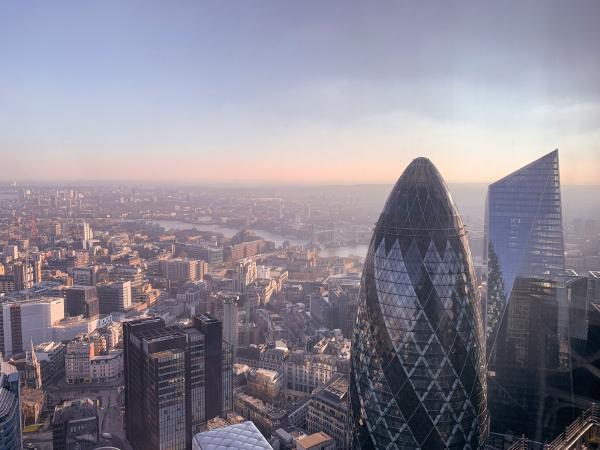by Shazre Quamber-Hill Director of Network Strategy and Impact Resilience First
As part of our commitment to drive resilience at scale, Resilience First will be working closely with the UN High-Level Climate Champions’ (HLC) teams and the Race to Resilience Campaign, which some of our members have been engaged with since 2021. In this new regular series, we will be keeping you up to date with the key highlights and activities within the current Egyptian presidency, and as well as what to expect for COP28 as preparations get underway.
Key outcomes from 2022:
In November, the UNFCCC’s Conference of Parties (COP27) closed two+ weeks of negotiations with the aligning of an historic agreement for a Loss & Damage Fund. The landmark deal recognises the deep inequities of the climate crisis, where the social and physical infrastructure of the poorest countries is most severely impacted by extreme weather, and the assistance - financial and technical - needed to rebuild this.
While many criticised the weak wording around the energy transition and the 1.5C climate goal, the agreement marked a major milestone on the road to achieving climate justice globally. Setting up the fund and financing it will be the key challenge for the current Egyptian presidency in the year ahead.
December saw another historic agreement, this time at the UN’s biodiversity conference (COP15) in Montreal. 2 weeks of tense talks saw 200 countries signing the Kunming-Montreal Global Biodiversity Framework (GBF). “30” was the number to remember: the deal includes targets to conserve 30% of the world’s land and 30% of the ocean by 2030, with developed countries mobilising $30bn to support less developed countries in doing this. While none of the components are legally Road to COP28 by Shazre Quamber-Hill Director of Network Strategy and Impact Resilience First binding, some are comparing the GBF to the 2015 Paris Agreement on Climate Change and countries have agreed to report on, review and voluntarily scale up ambitions to tackle biodiversity loss.
Taken together, the message for businesses is clear – climate change is no longer an issue that only governments need to tackle. As the case for a just transition becomes stronger and more urgent, businesses and corporates will play an increasingly central role in supporting local communities, and indeed are already increasingly being held accountable for the impacts of their actions in the countries and regions within which they operate.
Looking ahead:
In January, the incoming COP presidency in the UAE announced several key roles including naming the next HLC, Razan Al Mubarak (pictured), President of the International Union for Conservation of Nature (IUCN). With over 20 years of experience in conservation and environmental management, Al Mubarak is the first female Champion since the role was created in 2015, and has highlighted nature and inclusion as key focus areas for the campaign.
With the first Global Stocktake on the Paris Agreement looming, (and clear indicators that progress is not where it needs to be), this year will no doubt drive home the need for and importance of adaptation and resilience efforts to go hand in hand with mitigation.
Already titled as the ‘Solutions COP’, the dual crises of security and energy will continue to underpin the narrative on the need for action- we can expect to see a renewed focus on energy transition and technology solutions, and the critical need for finance to turn ambition into action. The private sector is expected to be central to driving innovation across these and other key areas.
At a more logistical level, the difficulties around attendance at the last two COPs have also brought forward a discussion on the entire COP process. With a reported 50,000 attendees expected at COP28 in Dubai, questions around how negotiators and decision makers engage with key stakeholders (such as businesses and other non-state actors) are already being raised. We may soon see revisions to the current process to bring it in-line with the 21st century.



